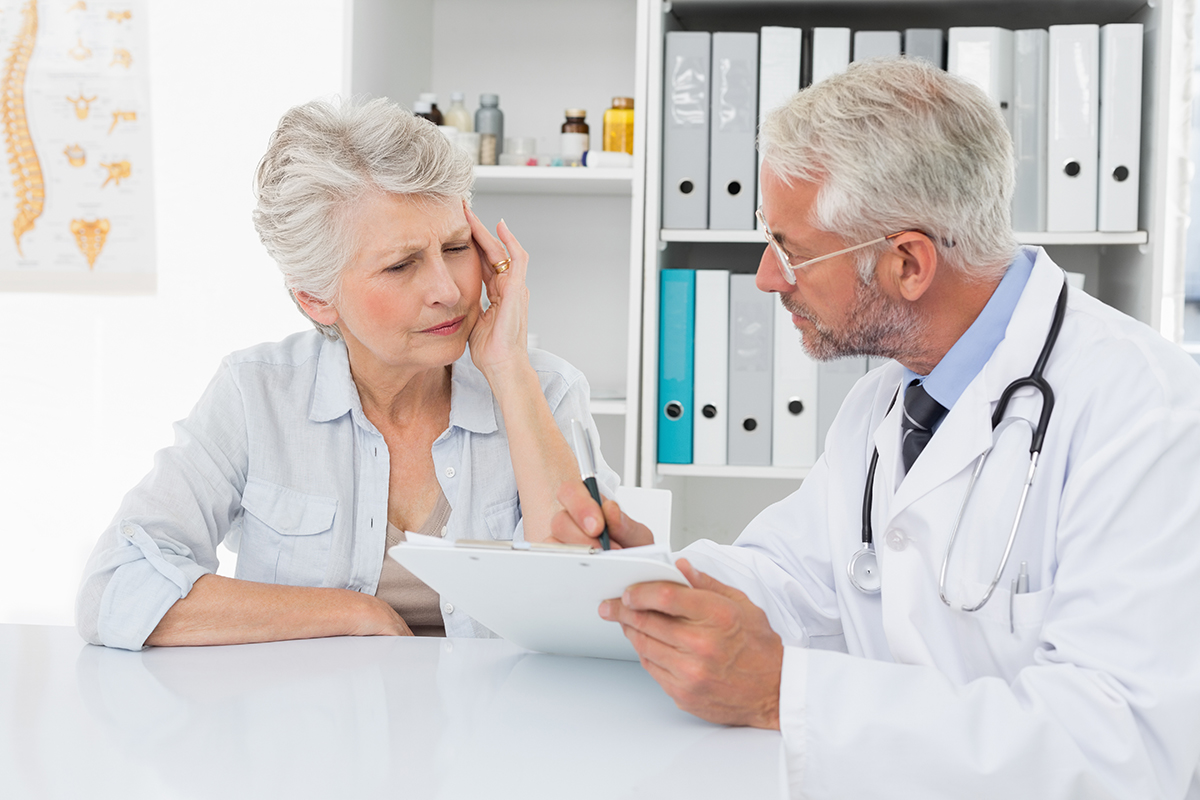What is menopause?
Menopause is a natural transitioning stage that will occur in every woman’s life. Menopause literally translates to ‘the last period’, as it marks the ending of a woman’s periods due to the ceasing of ovulation (releasing an egg monthly). As a result, the ovaries produce less of the female sex hormones, oestrogen and progesterone, and will generally occur between the ages of 45 and 55.
The end of a woman’s reproductive years can come part and parcel with a range of uncomfortable symptoms, including hot flushes, night sweats, sleep disturbance, weight fluctuation and vaginal dryness. While menopause is not the same for any one woman, there are a host of management options for these symptoms and physical changes.
Get regular health checks during menopause
Given that menopause generally occurs around middle age, other health problems have likely begun to appear in menopausal women. Issues at this time are typically age related and not necessarily related to your menopause. For this reason, it is essential that you get regular health checks as you age, to keep abreast of any possible and currently existing medical conditions. These health checks should also include regular reviews of your medications and dosages, particularly if you feel they are ineffective or are causing you any negative symptoms that you haven’t experienced before.
What treatments are available for menopause symptoms?
Menopause is an experience that all women will go through, though individual experiences will be unique. For this reason, there are a host of management options for different symptoms, should a woman feel that her symptoms are interfering with her quality of life.
There is no one size fits all approach to treating menopause symptoms, but they include:
- Healthy living – dietary adjustments and regular exercise
- Hormone replacement therapy
- Treatments to manage vaginal dryness, to reduce general vaginal dryness and make sex more comfortable.
- Natural therapies to complement medical treatment.
As with any potential treatments, benefits and side effects should be discussed with your doctor.
Book a free consultation with Australian Menopause Centre today
When visiting your doctor to discuss treatment issues, be sure to note the following:
- Your symptoms and how much they bother you
- Your personal risks based on your age, your overall health, and your risk for diseases such as heart disease or cancer, including family history
- Whether you have used a treatment like menopausal hormone therapy (MHT) before
- Whether you have already gone through menopause and, if so, how recently.
Maintaining a healthy diet and lifestyle during menopause
Part of managing menopause symptoms is ensuring that you are following a healthy diet and exercise routine. A balanced diet rich in fruit, vegetables, fibre, calcium rich foods and proteins combined with regular physical activity should be prioritised. Making healthy lifestyle choices will not only assist to alleviate some symptoms, but it will also provide your body with the vitamins and minerals it requires to stay healthy as it ages.
The impact of drinking alcohol during menopause
A number of lifestyle habits will affect the acuteness and frequency of menopause symptoms. Alcohol is reportedly one of them. Regardless of menopause, as a person ages they become more sensitive to the impacts of drinking. The reason for this is that cartilage and tendons lose water as you age, and a result, the body stores less water. The less water in your body, the less equipped your body is to dilute alcohol and its effects.
Many women report different impacts of alcohol during menopause. While some women find they are happier, others report feelings of depression. Some women report that their hot flushes, night sweats, and insomnia become worse after an evening of drinking alcohol. According to a number of health experts, heavy drinking during menopause can increase a woman’s risks of cancer, heart problems, liver disease and osteoporosis.
Managing menopause and mood disorders
The majority of women transition through menopause without experiencing the onset of a major mood disorder. In fact, very few scientific studies support the idea that menopause is a contributor to clinical depression, severe anxiety, or erratic behavior. However, many women do report symptoms of having a lowered or depressed mood, the onset of stress, anxiety, and a poorer sense of self throughout menopause.
Given that menopause signals a winding down of fertility, it’s unsurprising that many women find menopause to be a sad or difficult period, emotionally and mentally. The onset of menopause symptoms, including hormonal fluctuations, stress, troubled sleep, concerns about body image with weight fluctuation, infertility and aging can also lead to shifts in mood, even depression.
To alleviate symptoms of low mood, eating a well balanced diet and staying physically active may provide some relief. Most importantly, talk to your doctor. Depression is a serious illness, and getting a professional opinion will ensure that you get the care that you need. Many support groups also exist for menopausal women, and women receiving bio-identical hormone replacement therapy (BHRT).
Choosing the right medication during menopause
Menopause is a period of life experienced by all women, but no two women will experience it the same way. Ensure that your health is best taken care of by speaking with an Australian Menopause Centre doctor to discuss how your medication could be impacted during this transitional period.
